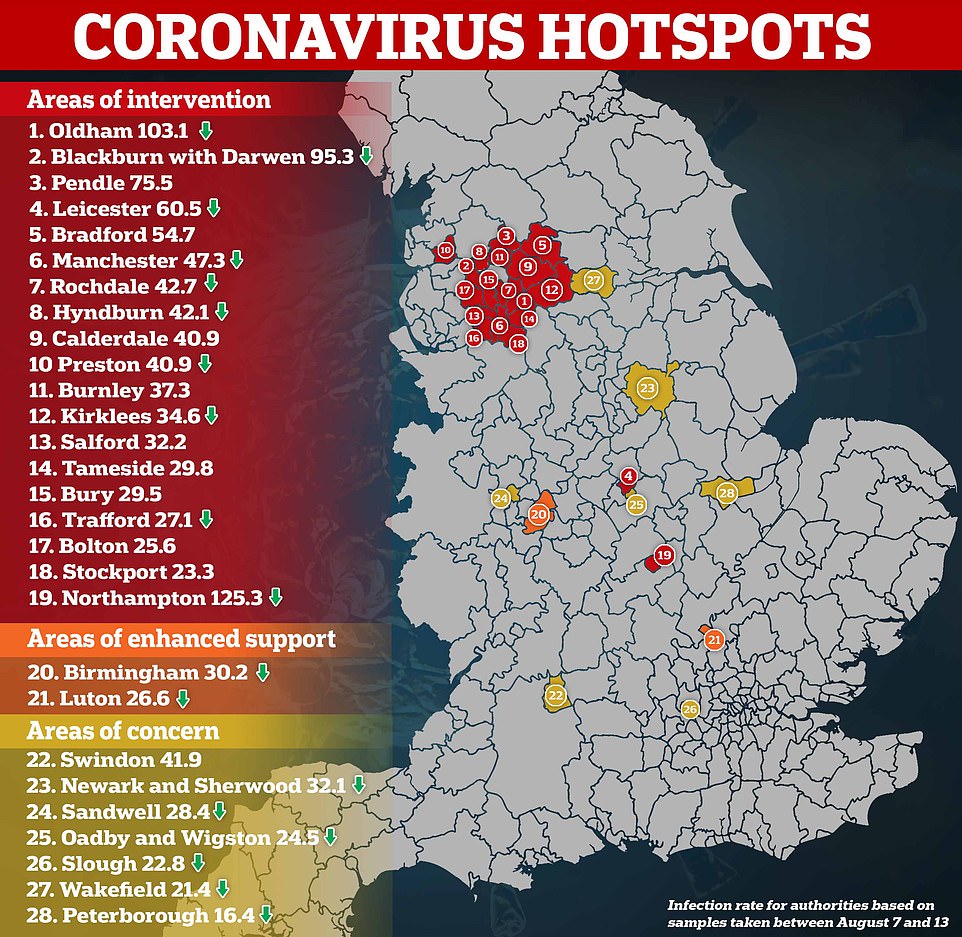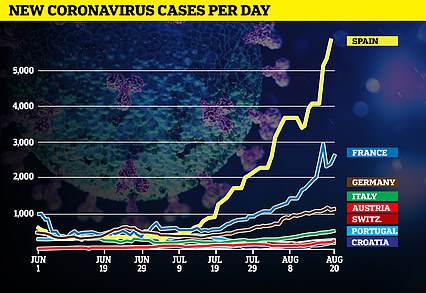Households in Oldham and Blackburn are BANNED from meeting together from today as the Government unveils its latest local lockdown rules
- Number 10 agreed the tougher restrictions for Oldham, Pendle and Blackburn with local council bosses
- Officials stopped short of imposing full lockdowns on the three authorities and ordering businesses to shut
- Wigan, Darwen and Rossendale have seen infections drop and will soon be released from lockdown rules
- Meanwhile, Birmingham is now an ‘Area of Enhanced Support’ because of a spike in coronavirus cases
- The rules in Oldham, Pendle and Blackburn will not prevent people from going shopping, work or school
- But they mean social activities both indoors and outdoors can only be shared with people who live together
Households in Oldham, Pendle and Blackburn are banned from meeting together from today after the Government announced drastic new measures to tackle spiralling coronavirus outbreaks in the three authorities.
Number 10 agreed the tougher restrictions with council bosses, warning that infection rates are still rising despite ‘dedicated efforts’ to contain the virus. Officials stopped short of imposing full localised lockdowns and ordering businesses to shut, which local leaders warned would have been ‘catastrophic’ for already-struggling firms.
Ministers today also announced Wigan, Darwen and Rossendale have seen cases drop and will soon be released from lockdown rules currently enforced in Greater Manchester as well as parts of Lancashire and West Yorkshire, where residents are banned from meeting another household in the comfort of their own home or garden.
Meanwhile, the Government has designated Birmingham as an ‘Area of Enhanced Support’ after the city’s Covid-19 infection rate has almost tripled since the start of August. Additional testing will be rolled out across the authority to determine the extent of the escalating outbreak.
And a Northampton sandwich factory that supplies M&S – where almost 300 workers have tested positive for the coronavirus – was also shut down today. All employees and their households must isolate for two-weeks, or face being fined.
The new rules in Oldham, Pendle and Blackburn will not prevent people from going shopping, going to work or attending child-care settings including schools which are due to reopen from September 1.
However, they do mean that social activities both indoors and outdoors can only be shared with people who live together. Residents in the three areas are also being advised to avoid using public transport except for essential travel.
The number of people who can attend weddings and funerals is recommended to be limited to household members and close family and no more than 20 people. Local restaurants are being told not to allow walk-ins and to only seat people who have made reservations in advance – with a maximum of six people per table.
It comes as confusion was today sparked about the current trajectory of the Covid-19 crisis in the UK. SAGE has warned that Britain’s coronavirus R rate could now be above the dreaded level of 1 just hours after a Government surveillance study revealed cases had fallen.
Government advisers estimate the R value – the average number of people each coronavirus patient infects – is now between 0.9 and 1.1, up from last week’s prediction that it was hovering around 0.8 and 1. It needs to stay below one or the virus could start to spread exponentially again.
But an official report released this afternoon suggested the epidemic is shrinking. The Office for National Statistics (ONS) estimated weekly infections have plummeted by a third in a week, with 2,400 people now contracting the disease every day in England alone – down from the 3,800 last week.
Fears of a second wave are high because cases had risen consistently throughout July – but government figures suggested they have started to drop again this week. Top experts warned the rise was down to more testing in badly-hit areas, saying hospital admissions and deaths have not risen in line with infections.
Government sources say the spike in cases is largely down to younger people getting infected, who studies have shown face less risk of dying or becoming severely ill from Covid-19.
In other coronavirus developments in Britain today:
- Public sector debt went above £2trillion for the first time in history after the Government was forced to borrow billions of pounds to keep the UK’s crippled plc afloat during the coronavirus crisis;
- Britons dashed to book Bank Holiday breaks in Portugal after it was ‘green-listed’ and hotels slashed prices in a last-minute scramble to fill rooms – but flight costs have risen six-fold;
- Official statistics revealed coronavirus has been bumped down to become the eighth most common killer in England, in another sign the darkest days of the crisis are behind us;
- Pregnant women and new mothers died needlessly in lockdown after being denied intensive care beds or mental health services, a damning Oxford University report warned.
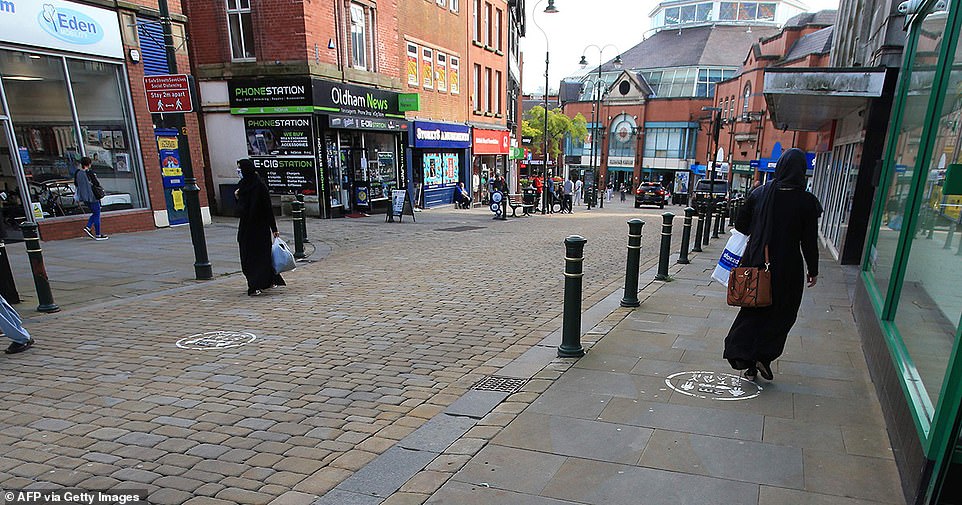
Households in Oldham, Pendle and Blackburn will be banned from socialising together from midnight on Saturday. Oldham shops are pictured yesterday
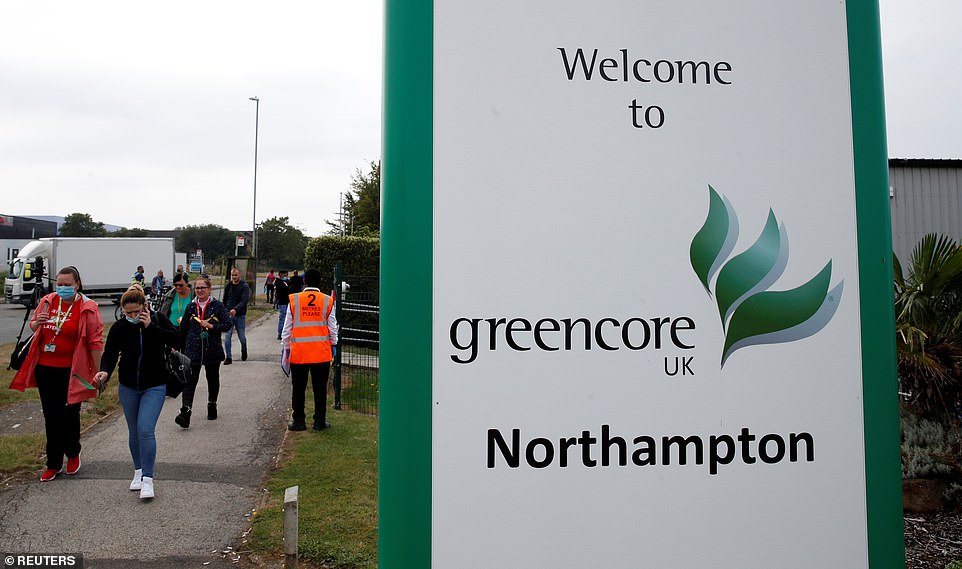
And a Northampton sandwich factory that supplies M&S – where almost 300 workers have tested positive for the coronavirus – was also shut down today. All employees and their households must isolate for two-weeks, or face being fined
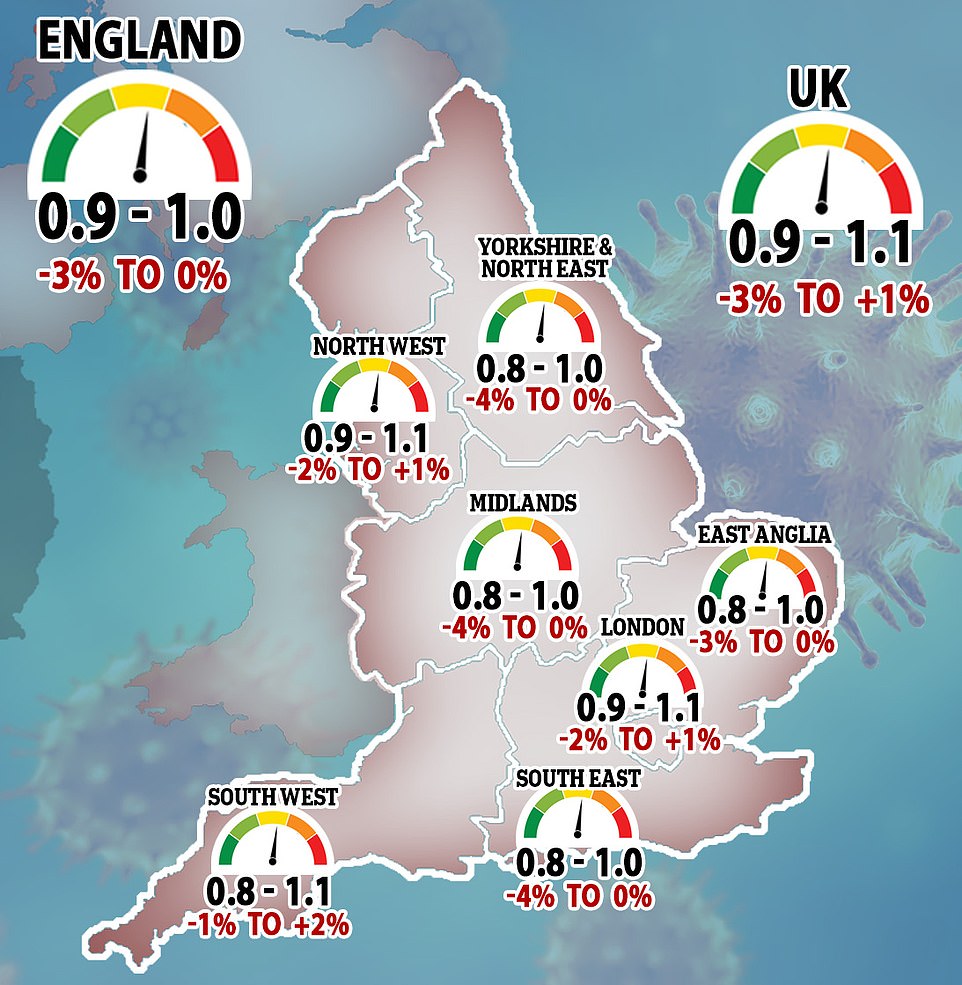
The Government’s Scientific Advisory Group for Emergencies (SAGE) estimates the R value – the average number of people each coronavirus patient infects – is now between 0.9 and 1.1, up from last week’s prediction that it was hovering around 0.8 and 1.0
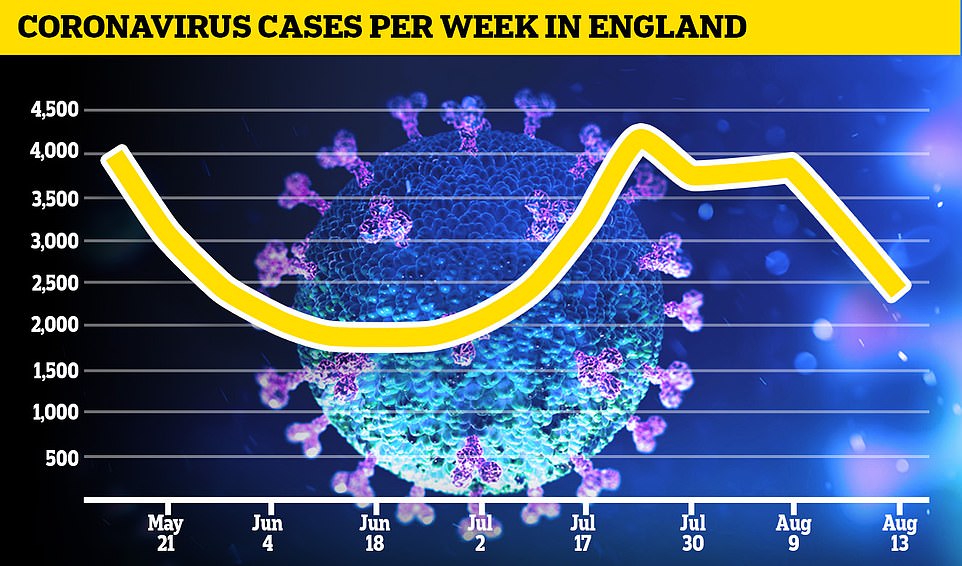
The Office for National Statistics estimates 2,400 people are contracting the disease every day, down 37 per cent from the 3,800 the previous week
The new rules, which will not apply in the Darwen area of the Blackburn with Darwen Upper Tier Local Authority area, parts of Pendle, in Rossendale or in Wigan, are in addition to the existing ban on indoor gatherings of more than two households in place across parts of Lancashire, Greater Manchester and West Yorkshire.
Health Secretary Matt Hancock said: ‘To prevent a second peak and keep Covid-19 under control, we need robust, targeted intervention where we see a spike in cases. The only way we can keep on top of this deadly virus is through decisive action led by the people who know their areas best, wherever possible through consensus with a local area.
‘Working with local leaders we agreed further action [in] Oldham, Pendle and Blackburn. It is vital that everyone in these areas follow the advice of their councils, and abide by their local rules carefully.
‘Our approach is to make the action we take as targeted as possible, with the maximum possible local consensus.
‘To do that we are introducing a new process to increase engagement between local leaders, both councils and MPs, with the aim of taking as targeted action as possible. This will allow local councils to focus resources onto the wards which need more targeted intervention in order to drive infection rates down, and gives local people a stronger voice at the table.’
The decision to impose more stringent restrictions in Oldham, Blackburn and Pendle comes after it emerged yesterday that cases in Oldham had reached 103.1 per 100,000 people during the week ending 13 August.
In Blackburn and Pendle case numbers had reached 95.3 and 75.5 cases respectively.
The sharp rise in cases is in part due to a major increase in testing led by local councils.
The Government said local data suggested the increase in cases is being driven by social mixing between 20-39 year-olds.
Ministers also today announced that Birmingham is being designated as an ‘Area of Enhanced Support’ because coronavirus cases in the city are ‘rising quickly’.
The city currently has 30.2 cases per 100,000 and the percentage of people testing positive is up to 4.3 per cent.
The new designation means Birmingham will now be subject to additional testing, more locally led contact tracing and targeted community engagement.
Mr Hancock is due to hold a meeting with local leaders today to discuss ‘urgent next steps’ which could be required in Birmingham.
Rules prohibiting social gatherings in Lancashire, Greater Manchester, West Yorkshire and Leicester will now be lifted in Wigan, Rossendale and some parts of Blackburn with Darwen.
These areas will align with the rest of England from Wednesday August 26 but the measures will continue to apply elsewhere, with another review scheduled for next week.
The Government’s new approach to drawing up local lockdowns will see councils in areas of ‘National Intervention’ tasked with working together in order to propose a plan for a specified area which is experiencing a surge in cases.
Local leaders will be expected to strike a consensus between councils and local MPs with areas where coronavirus is less prevalent expected to be made exempt from restrictions.
A final decision will then be made by the Joint Biosecurity Centre Gold Meeting which will be chaired by Mr Hancock and the Chief Medical Officer, Professor Chris Whitty.
The Government’s decision to put tougher restrictions on Oldham, Blackburn and Pendle come after SAGE warned the reproduction rate could now be 1.1.
Experts say the R needs to stay below one or Governments risk losing control of the epidemic and the virus could start to spread exponentially again. SAGE said it had ‘lost confidence’ the R remained below the danger zone.
SAGE said it was ‘seeing indications that’ coronavirus was resurging in all of the home nations, which has fuelled fears that a second wave of the virus is making its way through the country.
In the last week, England’s R value crept up from between 0.8 and 1.0 to 0.9 and 1.0, which has pushed up the overall rate across Britain. Miniature outbreaks in Scotland and Northern Ireland have also contributed to the rise.
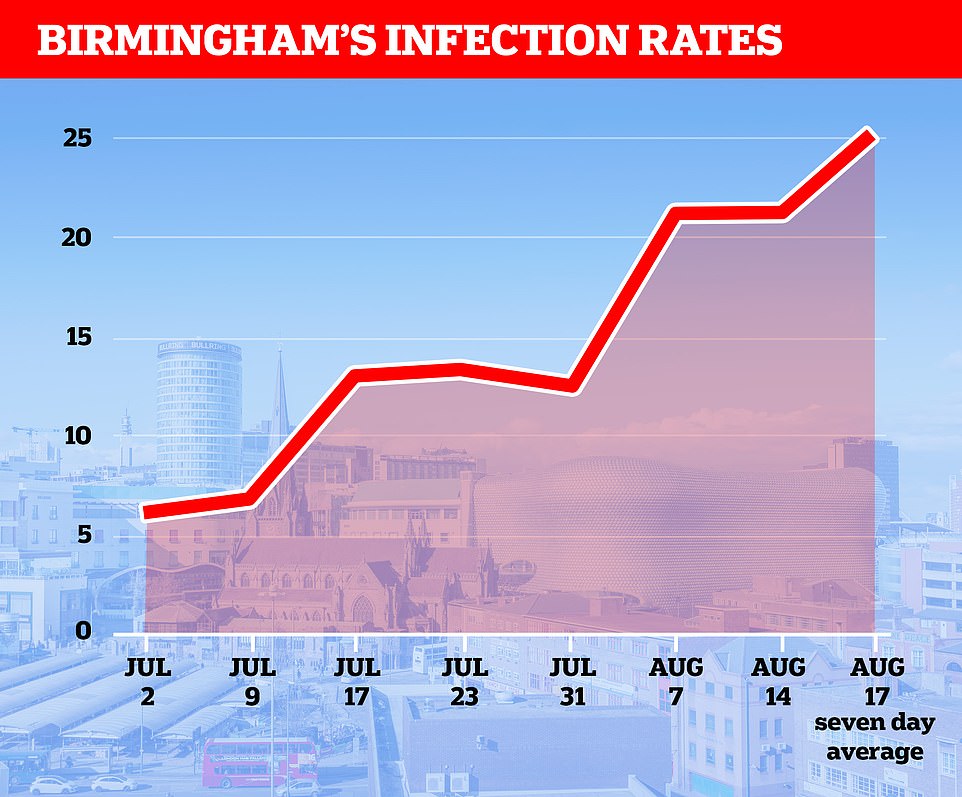
Official figures show the city of Birmingham’s infection rate has more than doubled over the past fortnight, with around 25 new cases of coronavirus for every 100,000 people — up from just 11 in the first week of August
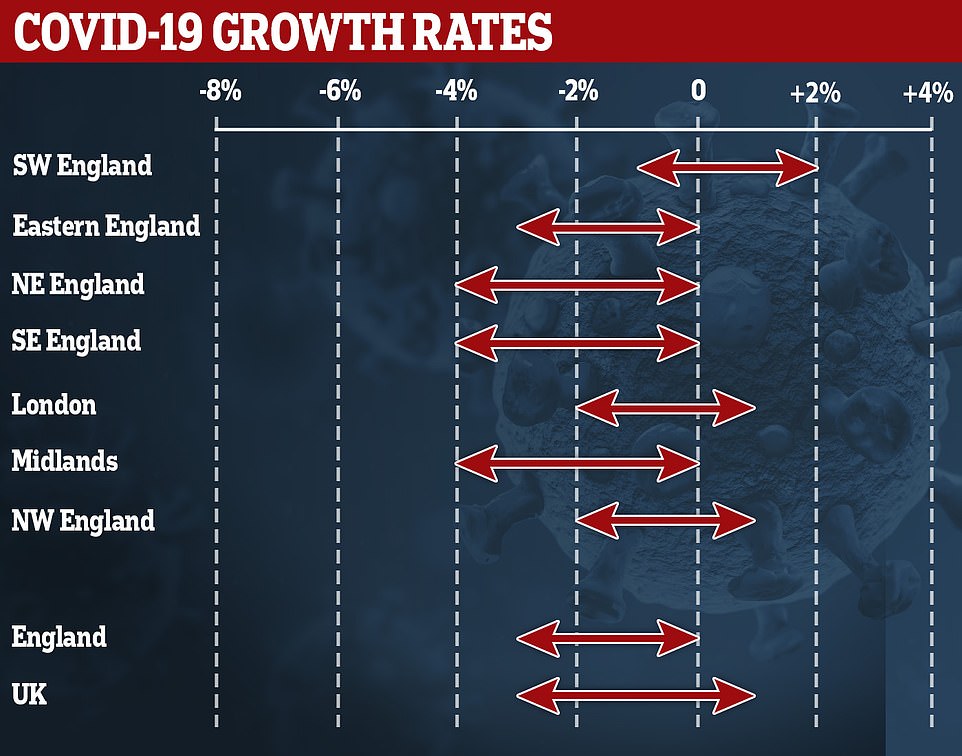
The latest growth rate for the whole of the UK is between -3 per cent to +1 per cent. A growth rate between -3 per cent to +1 per cent means the number of new infections is somewhere between shrinking by 3 per cent and growing by 1 per cent every day. The most likely value is towards the middle of the range
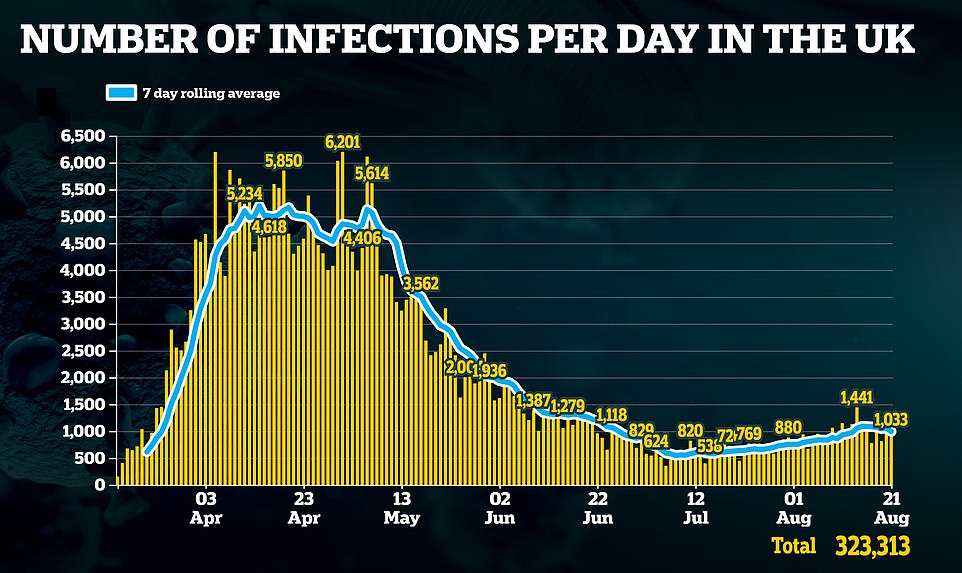
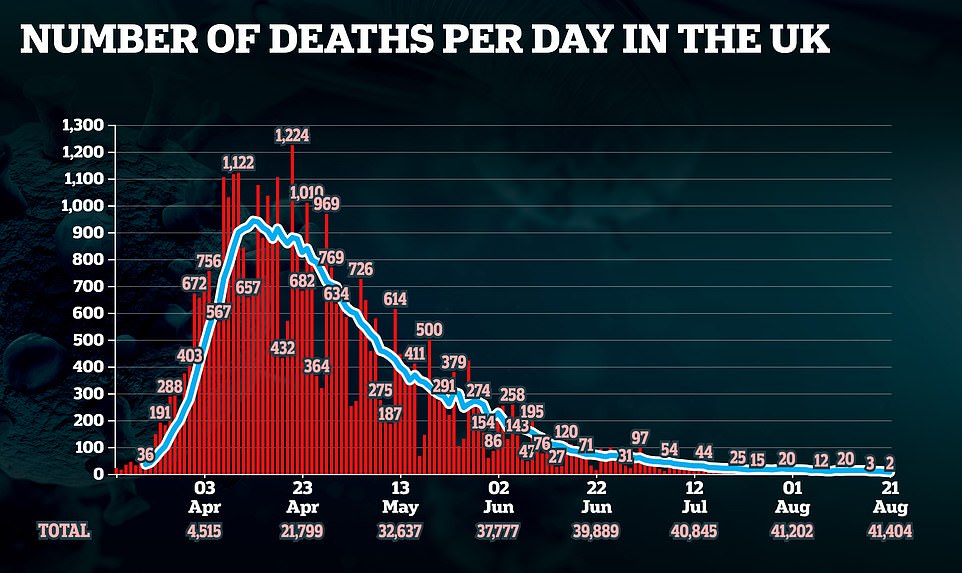
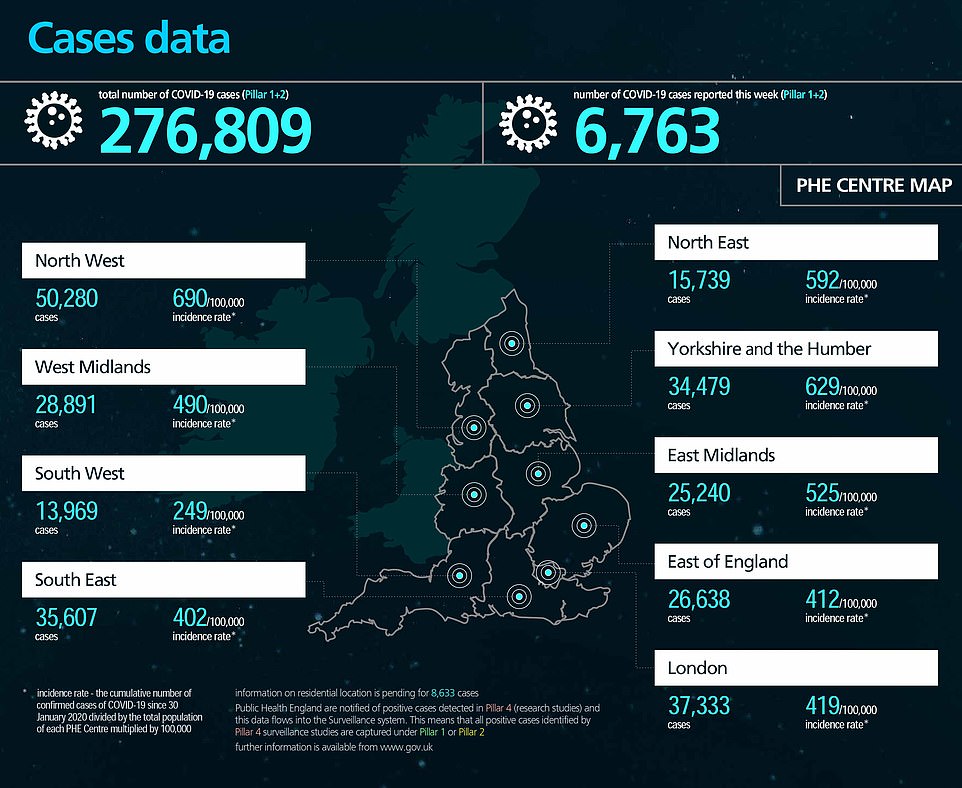
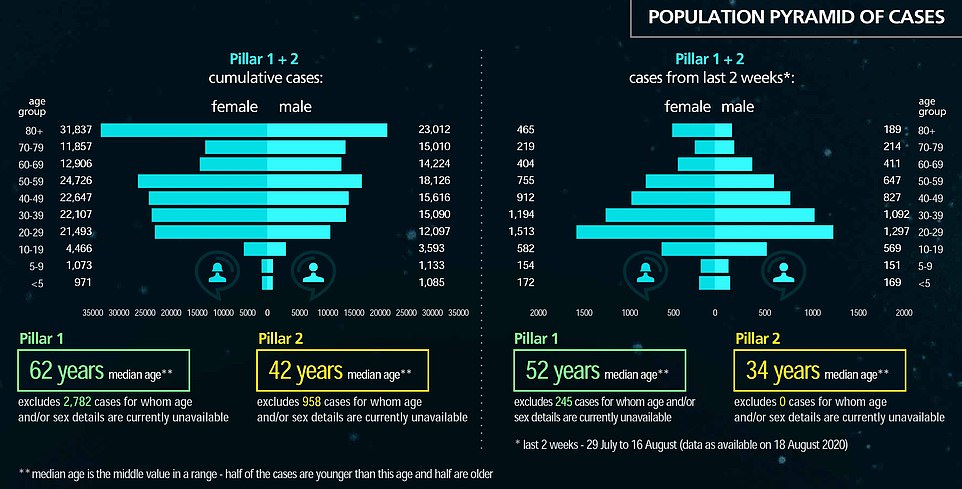
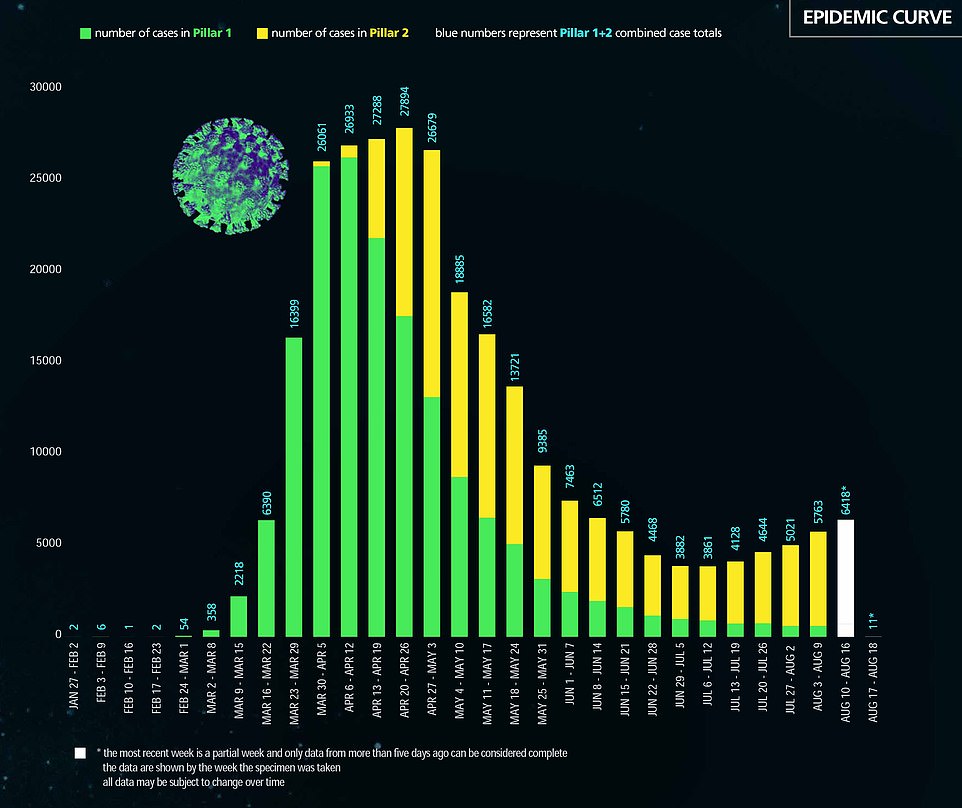
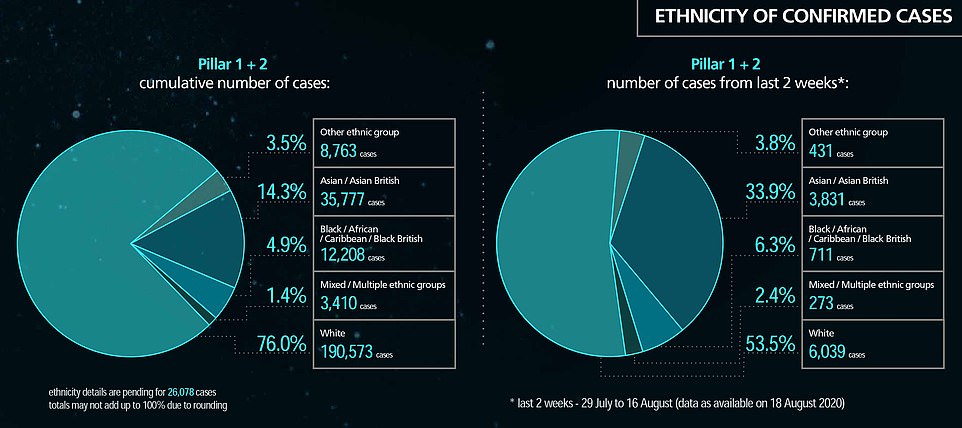
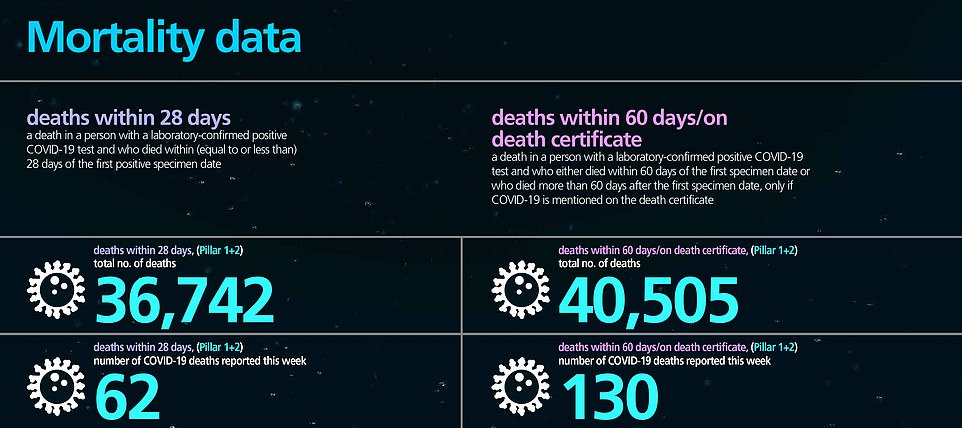
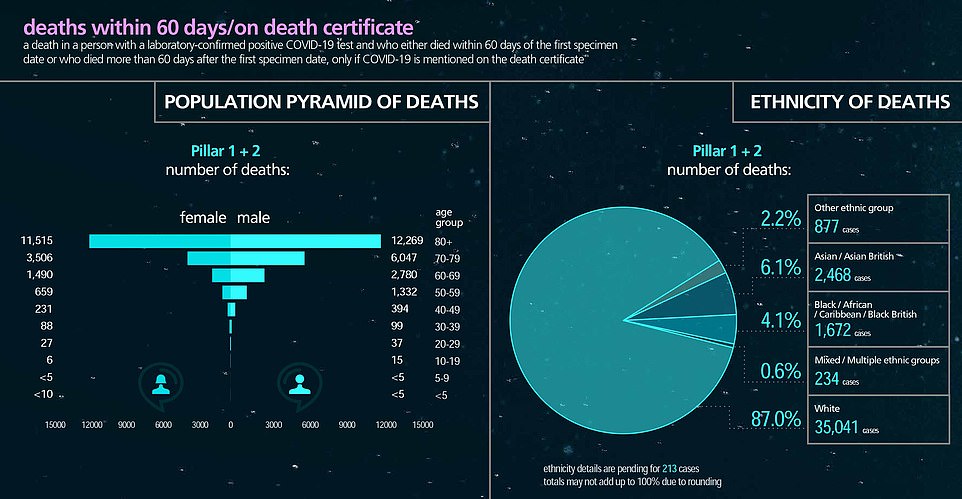
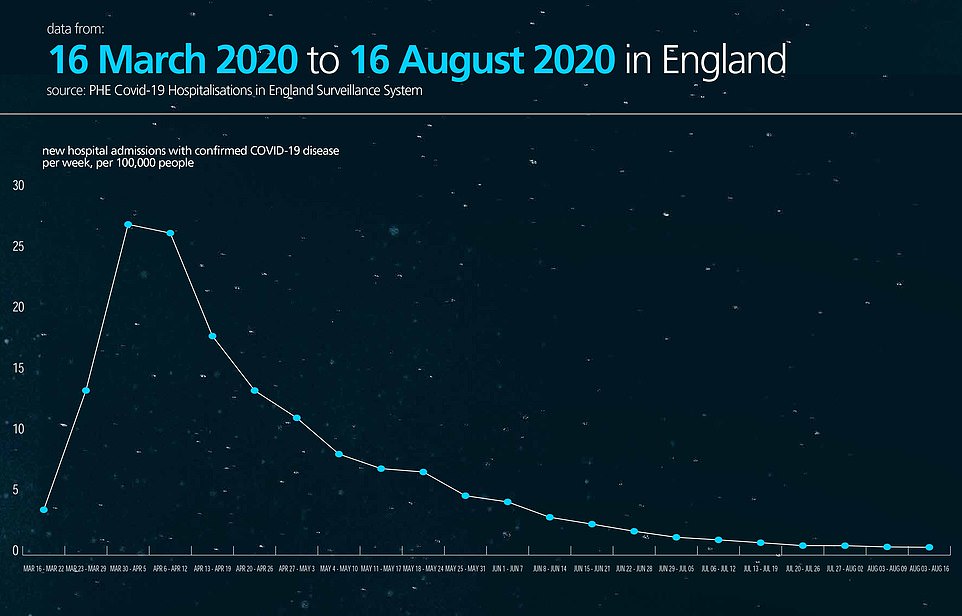
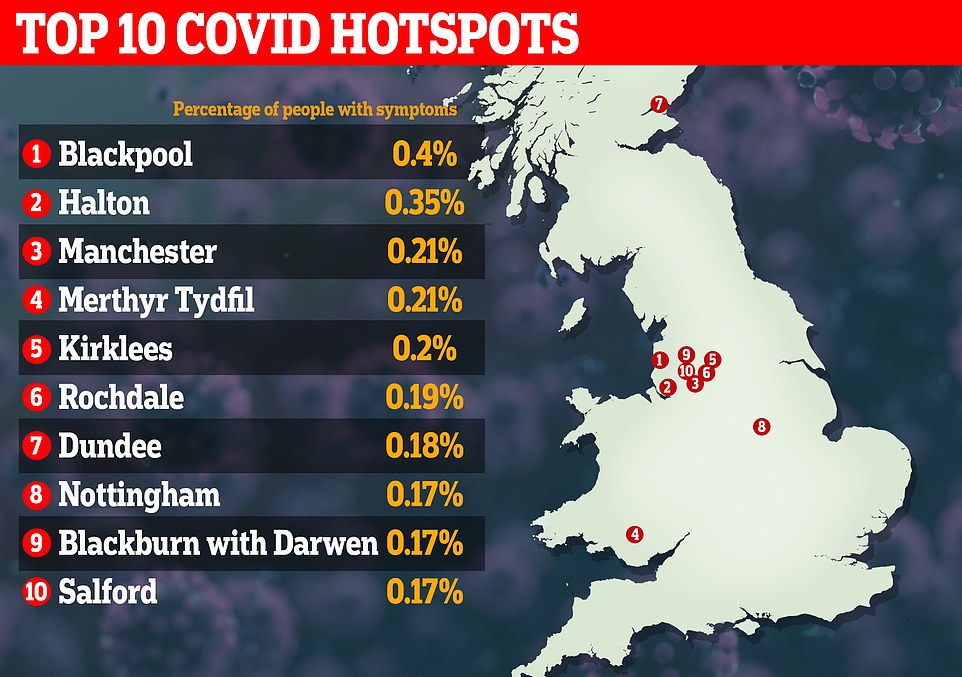
Researchers from King’s College London, who run the COVID Symptom Tracker app that is used by millions of Brits, say Merthyr Tydfil in Wales, Dundee City and Nottingham should now be monitored closely. The other seven hotspots have already had lockdown restrictions rolled back
To estimate the R, scientists look at clinical data such as hospital admissions and deaths, as well as behavioural surveys and people’s movement patterns.
But SAGE warned that when transmission is as low as it currently is in the UK – around 1,000 people are being diagnosed every day – the R is more volatile.
This means it can be skewed upwards by local clusters of infections, which has been seen in swathes of the North West of England.
SAGE’s warning comes on the same day an Office for National Statistics (ONS) report suggested the epidemic was shrinking, adding to confusion about how the virus is currently behaving.
The ONS found weekly infections plummeted by a third in a week, with 2,400 people now contracting the disease every day – down 37 per cent from the 3,800 the previous week.
Statisticians at the Government-run agency said that while cases had been on the climb since July – prompting fears of a second wave – the epidemic’s upward trajectory had now been stopped in its tracks.
The ONS bases its predictions on 135,808 swab tests taken over seven weeks, out of which 61 people tested positive for Covid-19. The low number of positive tests means its estimates should be treated with caution.
One of the Government’s top scientific advisers said today that, after reviewing the R rate study and ONS report, they think ‘this is all probably trending upwards, very gently.’
They warned more younger people were testing positive and suggested it was only a matter of time before they began to infect older citizens who are far more vulnerable to Covid-19’s nasty symptoms.
The ONS’ daily infection predictions are much different to the Government’s official daily count, released by the Department of Health and Social Care (DHSC) every afternoon.
Testing data is collected by the ONS from swab tests sent regularly to people’s homes to test whether they are infected with the virus at the time. The people are chosen to be representative of the UK population.
The households taking part in the survey were tested for Covid-19 regardless of whether they had symptoms or not.
Thousands of people become infected but never request a test and so go unreported in the DHSC’s statistics.
Going by the official metric, 1,051 Britons are now testing positive for the life-threatening disease each day, on average – which is half of what the ONS predicts.
For comparison, the rolling average yesterday was 1,043 and it had been falling every day since August 15, when the figure reached a six-week high of 1,097.

